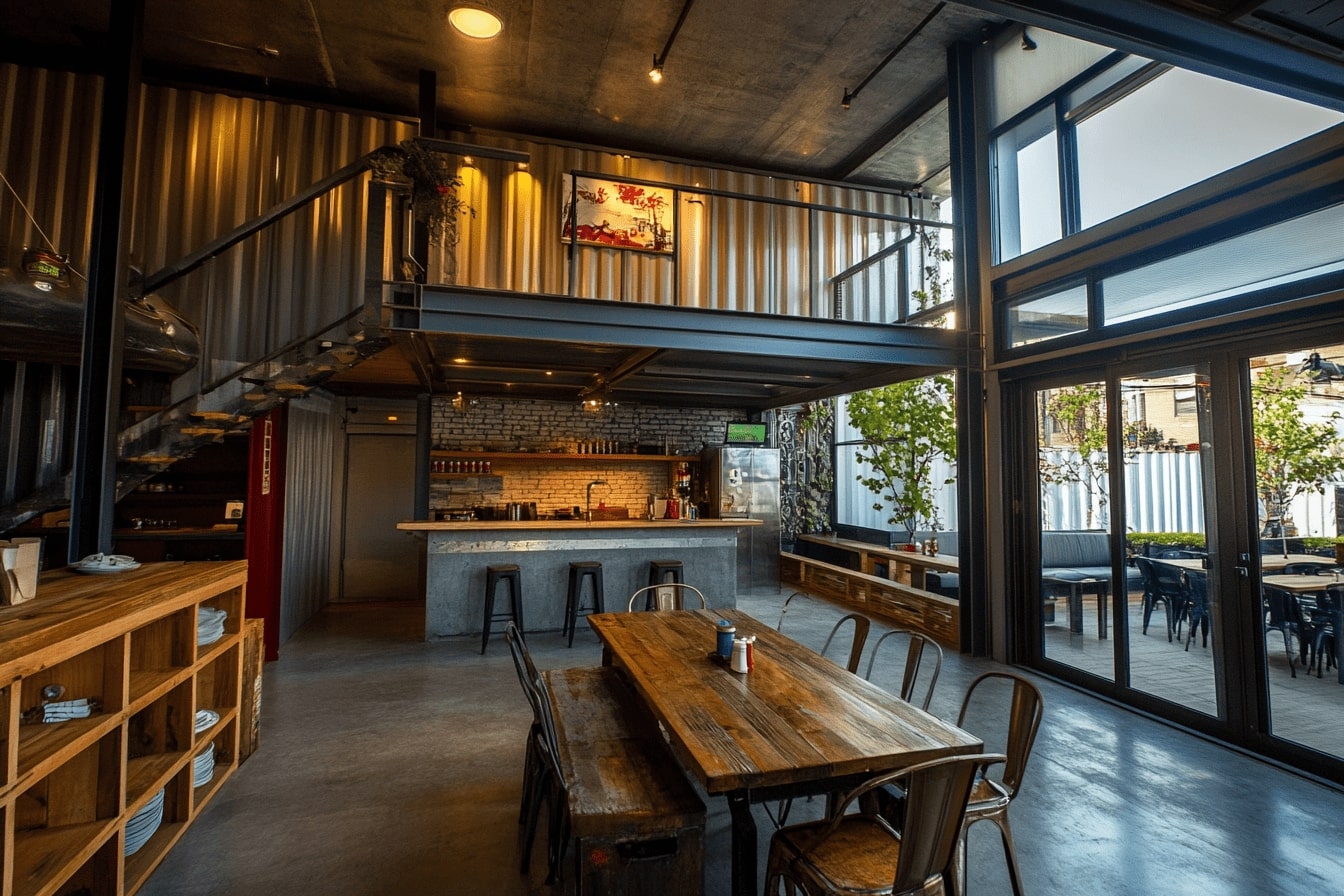- Home
- Articles
- Architectural Portfolio
- Architectral Presentation
- Inspirational Stories
- Architecture News
- Visualization
- BIM Industry
- Facade Design
- Parametric Design
- Career
- Landscape Architecture
- Construction
- Artificial Intelligence
- Sketching
- Design Softwares
- Diagrams
- Writing
- Architectural Tips
- Sustainability
- Courses
- Concept
- Technology
- History & Heritage
- Future of Architecture
- Guides & How-To
- Art & Culture
- Projects
- Interior Design
- Competitions
- Jobs
- Store
- Tools
- More
- Home
- Articles
- Architectural Portfolio
- Architectral Presentation
- Inspirational Stories
- Architecture News
- Visualization
- BIM Industry
- Facade Design
- Parametric Design
- Career
- Landscape Architecture
- Construction
- Artificial Intelligence
- Sketching
- Design Softwares
- Diagrams
- Writing
- Architectural Tips
- Sustainability
- Courses
- Concept
- Technology
- History & Heritage
- Future of Architecture
- Guides & How-To
- Art & Culture
- Projects
- Interior Design
- Competitions
- Jobs
- Store
- Tools
- More
Top Tips for Ensuring Legal Compliance in Your Container Home Project
Ensure legal compliance in your container home project with top tips on securing permits, conducting inspections, and considering environmental factors like sustainability and energy efficiency. Learn about financial planning, property value enhancement, and cost reduction through energy-efficient upgrades.

Container homes are more than just a trendy housing solution; they’re a sustainable and cost-effective way to live. However, navigating the legal landscape can be daunting. It’s crucial to ensure our container homes meet all legal requirements to avoid fines, delays, or even the dismantling of our dream homes.
Understanding zoning laws, building codes, and permits is essential. These regulations vary by location and can significantly impact our project’s feasibility. Let’s dive into the top tips for ensuring our container homes are legally compliant, so we can focus on creating a stylish and eco-friendly living space without legal headaches.

Table of Contents
ToggleUnderstanding Legal Requirements
Legal compliance is essential for container home projects to proceed smoothly. These requirements differ by jurisdiction, so it’s important to research federal, state, and local regulations.
Zoning Laws
Zoning laws control land use and dictate where container homes can be built. Residential areas may have different restrictions compared to commercial zones. Consult the local zoning office to confirm the allowed land uses for your property.
Building Codes
Building codes ensure that container homes are safe and habitable. These regulations cover structural integrity, plumbing, and electrical systems. Review the International Residential Code (IRC) or your local building codes for specific requirements.
Permits
Permits are necessary to authorize construction. The process involves submitting plans and passing inspections. Contact your local building department to determine the types of permits needed for your container home.
Environmental Regulations
Some jurisdictions require environmental assessments to ensure that your container home won’t negatively impact the local ecosystem. Check with your local environmental protection agency for any related regulations.
HOA Restrictions
Homeowners Associations (HOAs) may have additional rules governing the construction and appearance of homes within a community. Review HOA guidelines to avoid conflicts.
Utility Connections
Utility connections require compliance with local standards. Ensure that your container home will have safe access to water, sewer, and electricity. Investigate utility company requirements for connecting to their services.
Staying informed about these legal requirements helps ensure that your container home project remains compliant and avoids legal issues.

Zoning Laws and Building Codes
Understanding zoning laws and building codes is essential for ensuring legal compliance in container home projects.
Research Local Regulations
Zoning laws determine where we can build container homes. Local governments set these rules, so they vary by location. It’s necessary to check municipal or county zoning ordinances. These regulations often specify residential, commercial, or mixed-use zones. For example, some areas might restrict container homes to certain districts or require specific lot sizes.
Some key points to consider include:
- Zoning Districts: Identifying if the land is zoned for residential use.
- Lot Size Requirements: Ensuring our plot meets the minimum size criteria.
- Setback Rules: Checking the mandatory distance from property lines.
Consult with Professionals
Professionals can help us navigate complex building codes. Architects, engineers, and contractors specialize in understanding these regulations. Consulting with them ensures our container home meets structural and safety standards.
They assist in:
- Design Compliance: Creating designs that adhere to local building codes.
- Permit Acquisition: Guiding us through the permit application process.
- Site Evaluation: Assessing the site to meet environmental and safety requirements.
By thoroughly researching local regulations and consulting with professionals, we enhance the likelihood of a successful, compliant container home project.

Permits and Inspections
Adhering to legal guidelines is crucial to avoid complications in container home construction. We must secure appropriate permits and ensure regular inspections.
Necessary Permits
Construction permits are essential to validate our project. Common permits include building, electrical, plumbing, and mechanical permits. Building permits ensure our design adheres to local codes for structural integrity and safety. Electrical and plumbing permits verify our installations comply with regulations to prevent hazards. In cities like Los Angeles and New York, these permits are mandatory and rigorously checked.
Applying for permits involves submitting detailed plans and specifications. These documents outline our container home’s layout, materials, and systems. Planning departments may require environmental impact assessments, especially in rural areas. We should also be prepared for possible site inspections during the permit approval process.
Importance of Inspections
Inspections are vital to maintain compliance at different construction stages. Inspectors validate that our work aligns with approved plans and adheres to safety codes. Initial inspections occur post-foundation work, ensuring our structure is secure. Electrical and plumbing systems are inspected before walls are sealed to check for code compliance. Finally, a comprehensive inspection upon project completion ensures our container home meets all regulatory standards.
Failing to schedule timely inspections can lead to fines and construction delays. In some jurisdictions, such as Florida and Texas, missing an inspection can invalidate our permit, necessitating reapplication. Regular inspections also help identify and rectify issues early, preventing costly repairs later.
Adhering to these steps ensures our container home project remains legally compliant and structurally sound.

Environmental Considerations
Considering environmental factors in container home projects ensures not only compliance but also sustainability.
Waste Management Policies
Adhering to waste management policies minimizes environmental impact. Local regulations may require specific disposal methods for construction debris. Recycling materials like metal and wood aligns with eco-friendly practices. Proper waste segregation ensures hazardous material doesn’t contaminate the environment. For organic waste, composting options may be available. Consult local waste management authorities to understand and implement these practices.
Energy Efficiency Standards
Meeting energy efficiency standards reduces energy consumption and lowers utility costs. Insulate container walls with high-quality materials to retain heat. Install energy-efficient windows and doors to minimize heat loss. Utilize renewable energy sources, such as solar panels, for electricity. Energy-efficient appliances and LED lighting decrease overall energy usage. Ensure compliance with local energy codes by conducting energy audits during the design phase.
Financial Implications
Understanding the financial implications is vital for ensuring legal compliance in container home projects. Costs and benefits vary significantly.
Budgeting for Compliance Costs
Budgeting is critical to avoid unexpected expenses. Costs for permits, legal consultations, and inspections should be considered. Permits can range from $500 to $2,000, depending on location. Legal consultations average $150 to $400 per hour. Accounting for these costs early helps maintain the project’s financial health.
Long-term Financial Benefits
Complying with legal requirements offers long-term financial benefits. Legal compliance can enhance property value by up to 20%, ensuring your investment’s security. Energy-efficient upgrades like solar panels decrease utility costs long-term. Additionally, meeting legal standards reduces the risk of penalties and legal disputes, saving significant amounts in the future.
Conclusion
Ensuring legal compliance in container home projects is paramount. By understanding and adhering to federal, state, and local regulations, we can mitigate the risk of fines and delays. Securing necessary permits and conducting regular inspections are essential steps. Environmental considerations, such as sustainability and energy efficiency, play a significant role in legal compliance.
Financial planning is also crucial. Permits typically range from $500 to $2,000, and legal consultations average between $150 and $400 per hour. Complying with regulations can enhance property value by up to 20% and reduce long-term costs through energy-efficient upgrades.
Partnering with experienced professionals simplifies the process. Qualified contractors ensure safety standards are met, prevent costly errors, and facilitate permit and inspection processes. Consulting real estate attorneys specializing in property law provides insights into zoning laws, permit requirements, and compliance issues. These experts can also assist with contract reviews, protecting our interests and ensuring all legal standards are met.
- building permit for container home
- container home building codes
- container home building restrictions
- container home compliance guide
- container home construction laws
- container home construction permits
- container home legal compliance
- container home legal issues
- container home legal tips
- container home permits
- container home project regulations
- container home regulations
- container home regulations by state
- container home safety standards
- legal aspects of container homes
- legal requirements for container homes
- zoning laws for container homes
2 Comments
Submit your architectural projects
Follow these steps for submission your project. Submission FormLatest Posts
Building a House with Shipping Containers: Affordable, Sustainable, and Stylish Living Solutions
Discover the trend of building homes with shipping containers—affordable, eco-friendly, and customizable...
The Cost-Saving Benefits of Using Storage Containers in Construction
In the first months of 2024, construction input costs jumped 3.5%, tightening...
The Ultimate Guide to Living in a Container Home in the USA: Sustainable and Stylish
Discover the ultimate guide to living in a container home in the...
10 Essential Container Home Interior Design Tips You Need to Know
Discover the top 10 container home interior design tips to elevate your...












I think container homes are interesting. It’s good to know about the legal stuff, even if it seems complicated.
This article has some helpful tips. I didn’t realize there were so many rules for building a container home.